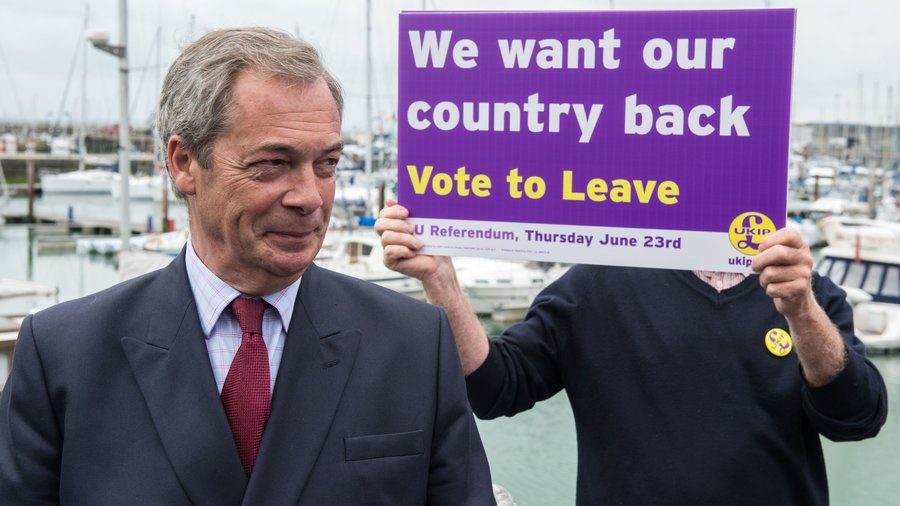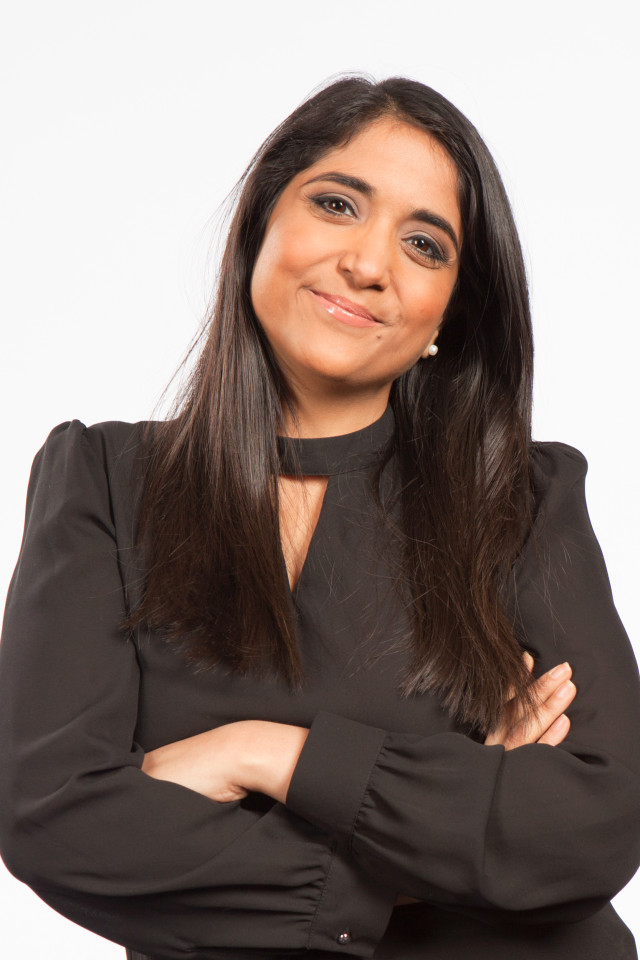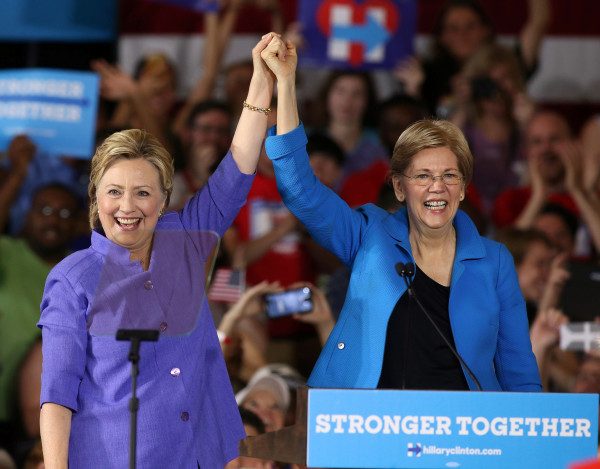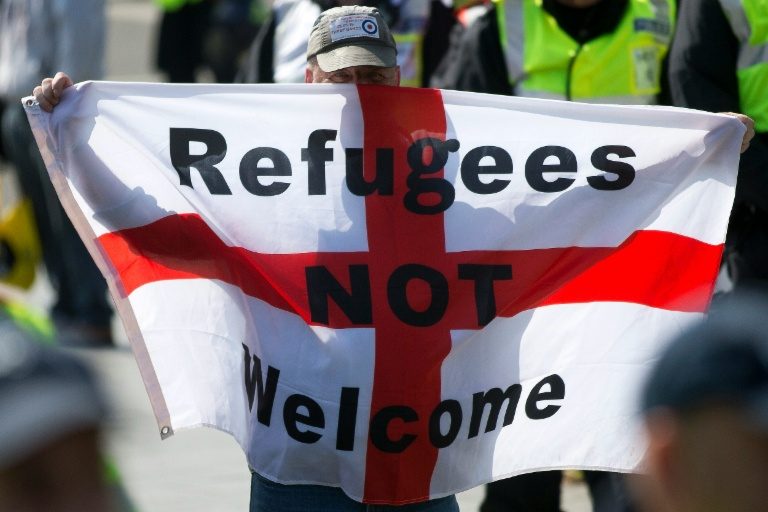How scared should we be?
Terrorism is everywhere. It’s a world away in Syria and it’s also invaded our safe spaces like a Charleston church or a Florida LGBT nightclub here at home.
Until the massacre at Pulse nightclub on June 12, terrorism felt further away from us – something that happens “over there” within the vagaries of Middle Eastern politics. Yet it wasn’t just Orlando that made us all sit up and take notice of the implacable nature of terrorism in the 21st century.
It was Donald Trump.
I’m one of the seasoned political pundits who never thought Trump would or could be the Republican presidential nominee. My money was on Ohio Gov. John Kasich with Florida Sen. Marco Rubio as his VP choice.
I thought the Republicans meant what they said in 2012 – that they needed to be less extreme, woo more voters of color, focus on the Latin vote.
I said it and wrote it over and over until February rolled around and the primary went into full swing and Trump’s momentum seemed – and then was – unstoppable. The most implausible of candidates had tapped into something that had been simmering in America for the 7+ years of Barack Obama’s presidency: hatred for The Other.
Trump’s earliest speeches trumpeted his loathing for immigrants and people of color. And the more outrageous those racist and xenophobic statements – be it the “wall” that would be built to keep out the “Mexican rapists and murderers” or the shutting down of mosques or the ending of immigration of Muslims or the forced deportation of millions – the more those at Trump’s rallies cheered.
Trump’s supporters cheered again when Trump was in Scotland at his Turnberry golf course the day the Brexit vote was announced. Trump applauded Brexit – the vote for the UK to exit the European Union, an unprecedented and disastrous choice for both the UK and the EU. Trump said Britons had “taken their country back” and were to be congratulated. Trump has used a similar mantra himself in every one of his rallies over the past year. “We’re going to take our country back!”
But what exactly does that mean, “take our country back”? From whom? From what?
The UK referendum to secede from the European Union was a world-altering vote. The European Union was established for ease of travel and access throughout the EU nations. It meant no need for special visas or passports. It meant Brits could go wherever they wanted within the EU and many did. One friend who voted remain (as opposed to leave) explained how she was able to get her PhD in a specific field while still living and teaching in England because the EU allowed such flexibility. A French friend who married a Brit was able to go back and forth to her job in Paris while living in London. Yet another friend in London took a teaching job in Portugal while maintaining her London position. Not much different from someone in Seattle teaching in San Francisco, but across countries – and yet no visas needed.
It’s stories like these that explain why under 40 voters were solidly for remain – they considered themselves citizens of Europe, not just people trapped on the tiny island that was once the greatest empire in the world.
But the waves of immigrants from Syria and Afghanistan churned up the always summering racism and xenophobia that have plagued the UK for generations and which harken back to when the country was indeed an empire and colonialism was a way of life. Older Britons wanted to cut off immigration and not be beholden to the EU’s decision-making on the issue. “It’s a cultural thing,” one leaver told me. “We want to hold onto our values and our culture. We just can’t have them coming in like that. We won’t recognize the place, soon.”
It’s that notion of being overtaken by “otherness” – by a “foreign” culture that swayed so many toward leave. Control over the UK’s destiny was the major factor in all the exit polls – no more immigration, no more EU Parliament making decisions for British citizens.
Tensions over Brexit were fueled by Nigel Farage, head of the UKIP party, which is a cross between Tea Party Republicans and Libertarians. Farage was a major campaigner for leave and since the vote – and the regret that has followed as the market tanked and the reality of what Brexit would mean began to sink in – has acknowledged that some of what he promised simply wasn’t true. Yet he declared the day Britons cast their vote the UK’s Independence Day.

In the week before the vote, tensions had begun to run so high that a young member of Parliament, Jo Cox, a mother of two small children and a staunch remainer who worked with immigrant constituents was assassinated–shot and stabbed to death on June 16. The sorrow over her murder was immense and the nation seemed poised to vote remain in part to honor her. The violence seemed to have woken many to how fraught the vote was.
But not enough.
A million more votes were cast for leave than remain, so while it was close – 52% to 48% – the die was cast.
Nearly 5 million people have signed a petition for a second referendum since June 24. Many leavers told the media they didn’t realize the implications. Others have said they were casting a protest vote against the current administration of David Cameron, which was pro-remain, and didn’t think it would count toward actually leaving the EU. And as people lost savings – 2 trillion dollars were wiped off world markets in the first 12 hours after the vote – actual fear set in as the possibility of recession loomed when fearmongering over austerity had been part of the leave campaign.
There have been many parallels made between the Brexit vote and the possibility of a Trump presidency since June 24. But the only one that truly works is the one Trump stated that day on the golf green at Turnberry: Taking the country back.
Many Americans forget that President Obama is a true African American: His father was African, his mother was American – and white. Obama literally embodies the complicated racial history and biases of our country in ways no one else ever has. His sister from his mother’s second marriage is half white, half Asian. Obama is the daily symbol of multicultural America, of that melting pot that America has been called since the 1770s when the Declaration of Independence was written. Our own Brexit.
But the Declaration of Independence, the Bill of Rights and the Constitution all had the flaw we see today in Trump’s platform and in the Brexit vote – they excluded women and people of color.
Since Brexit, attacks on immigrants and racial minorities have increased dramatically. On June 28, BBC reporter Sima Kotecha, was called a racial slur referencing her Pakistani heritage while reporting a story of Polish immigrants who had been badly beaten. Kotecha, who is English and was born and raised in Basingstoke, tweeted, “In utter shock: just been called P*** in my home town! Haven’t heard that word here since the 80s!”

Lesbians seeking asylum from African nations where it’s illegal to even exist as a lesbian will no doubt have an even more difficult time getting their petitions for asylum heard and/or approved under this post-Brexit, anti-immigration fervor. LGBT Muslims have already complained of increased incidence of Islamophobia.
Graffiti demanding repatriation of people who have lived in their neighborhoods for decades has been written and spray-painted on everything from the Polish Centre in London to people’s cars in immigrant-heavy neighborhoods. People of color have been harassed on public transit, including a doctor in Manchester. Children have been taunted at school and told they’ll be taken away, soon. Everywhere people are less safe than they were the day before the vote, which seems to have given permission to leavers to harass and attack their fellow citizens.
It’s not hyperbolic to suggest it could were Trump to be elected president. Trump’s rallies are peppered with unadulterated hate speech and overt examples of racism of the sort Kotecha experienced in Basingstoke. In recent weeks violence has broken out at several Trump rallies, fueled by his anti-immigrant statements. On June 29, after the terrorist attack at Ataturk Airport, Trump, who was campaigning in Maine, went into a long tirade about immigrants.
But the Bangor rally began with a racist introduction from Boston radio host Howie Carr. “I heard that Hillary Clinton and Elizabeth Warren [were] campaigning,” Carr said to boos from the audience, waving his hands and giving two thumbs down. “You know Elizabeth Warren, right?” Carr said, then put his hand to his mouth, miming a “war whoop,” in reference to the Massachusetts senator’s Native American heritage. For his part, Trump refers to Warren as “Pochahontas.”
These racial slurs and jabs, Trump’s calls for a return to torture, as he demanded at the Bangor rally – all of it breeds, as Hillary Clinton has stated repeatedly, an atmosphere of volatility and for those of us who are marginalized – people of color, Muslims, Jews, immigrants, LGBT – real danger.
.jpg)
Trump claims he is the “least racist person you’ve ever met,” but the Pocahontas comments alone are racist. And certainly his endless references to “taking our country back” can only be read as the racist, xenophobic and homophobic dog whistle it is.
Hillary Clinton, whose Twitter page was covered in Pride photos and whose logo has been rainbow flagged for Pride and who marched in the New York City Pride Parade on June 27, has consistently called Trump out for his “reckless” comments on terrorism, on immigration and on Muslims.
“Not one of Donald Trump’s reckless ideas would have saved a single life in Orlando,” Clinton said at a rally in Virginia after the massacre. “A ban on Muslims would not have stopped this attack. Neither would a wall. I don’t know how one builds a wall to keep the internet out.”
Terrorism came to the LGBT community on June 12. Our Pride marches are a reminder that we are still not equal citizens in our own country. But as we watch what is happening globally – be it terrorist bombings in Istanbul or individual acts of hate in the UK – we have to know our position as marginalized people is tenuous when it comes to Donald Trump. Many of us face more than one minority status – race and gender, for example. How safe would any of us be under a Trump presidency?

As the campaign for president moves toward the Republican and Democratic conventions at the end of July, our votes will matter more than perhaps any other in our LGBT lifetime. Many Brexit leavers thought they were protesting the current Tory administration, but they were actually tearing themselves away from the broad base of Europe and the result has been cataclysmic.
But the UK is a sixth of the size of America and not nearly as diverse. A wrong step come November in the US and, as with Brexit, many will pay. And many more will suffer.
We’re not going back, @realDonaldTrump. pic.twitter.com/ogoALlSV8M
— Hillary Clinton (@HillaryClinton) June 30, 2016
